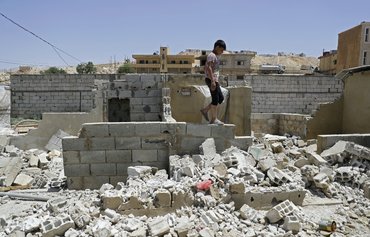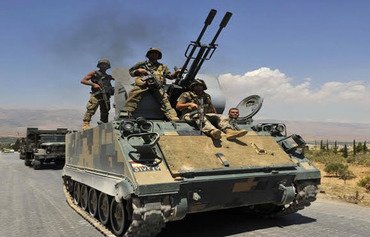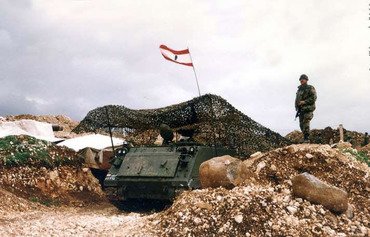With Lebanon in the throes of an economic and political crisis, security experts are warning the country is vulnerable to a resurgence of extremist activity.
Security had improved after the successful completion of Operation Fajr al-Juroud (Al-Juroud Dawn) in August 2017, which drove the "Islamic State of Iraq and Syria" (ISIS) and al-Nusra Front (ANF) out of the Arsal area.
In recent months, however, there has been a string of incidents that have raised alarm about a possible resurgence in extremist activity, though experts said Lebanese forces have largely demonstrated they are equipped to handle this.
Further, they told Al-Mashareq, the Lebanese people themselves do not support extremist activity and will not tolerate a repeat of the situation in Arsal.
"Security assessments conducted in both Iraq and Syria showed that terrorist groups gain strength whenever the central state weakens," said political and strategic affairs researcher Khalil al-Helou, a retired military officer.
Rampant corruption, economic woes and political turbulence, including the authorities' crackdown on protestors, "present an opportunity for terrorist groups to become active without attracting attention", he told Al-Mashareq.
Extremist groups do not need much preparation to resume their activities, he said, as they operate in small cells with modest self-funding, using rudimentary technology and tools.
But their relatively low level of activity to date indicates they are not finding a conducive environment in Lebanon, he said, "otherwise they would have posed a more serious and potent threat".
Al-Helou noted that Lebanese security agencies possess enormous capabilities and carry out pre-emptive security operations to deprive extremist cells of the freedom to move and initiate attacks.
There will not be a repeat of the conditions that led to the August 2014 Battle of Arsal, he said, in which fighters from ISIS and ANF attacked Lebanese army checkpoints, stormed the police station and seized control of the town.
The militants took 16 policemen hostage, amid fighting that left heavy casualties on both sides.
Heightened extremist activity
Concerns about a resurgence in extremist activity have been heightened since September 14th, when the Lebanese army reported that four soldiers had been killed while attempting to arrest a suspected terrorist in north Lebanon.
The soldiers had been trying to detain Khaled al-Tallawi, who headed a militant cell that was behind the August 21st murder of two police officers and the son of the mayor of Kaftoun village in the country's north, the army said.
As Lebanese forces raided his home in the Beddawi area near Tripoli, al-Tallawi opened fire and lobbed a hand grenade at the troops, the army said.
Three soldiers were killed on the spot, while another was severely wounded and later succumbed to his injuries. Al-Tallawi was later shot dead after soldiers chased him and affiliated militants in a manhunt that lasted into the night.
Lebanese police on September 26th killed at least nine suspected members of a large ISIS cell during a raid on a house in the northern region of Wadi Khaled where "suspects linked to ISIS" were holed up.
Three other members of the cell had been arrested in previous raids.
In a separate incident around the same time, two Lebanese soldiers and one "terrorist" were killed when the militants attacked an army post in the northern area of Arman-Miniyeh, the army said September 27th.
Commenting on the recent incidents in northern Lebanon, security experts noted there has been a change in ISIS's modus operandi.
The extremist cells were large, refused to surrender, and were found to have self-financed their operations through robbery and burglary, they said.
Security expert Naji Malaeb, a retired Lebanese military officer, told Al-Mashareq he could not rule out the possibility that extremist cells "could be exploited politically by some of the conflicting parties" in Lebanon.
"These groups exist, and are equipped," he said, and given the current conditions in Lebanon, may attempt to carry out their extremist plots.

![Lebanon's Internal Security Forces demolish a house where suspected ISIS elements were hiding in the northern Wadi Khaled region near the border with Syria on September 27th. [Ibrahim Chalhoub/AFP]](/cnmi_am/images/2020/10/19/26559-Lebanon-Wadi-Khaled-600_384.jpg)






